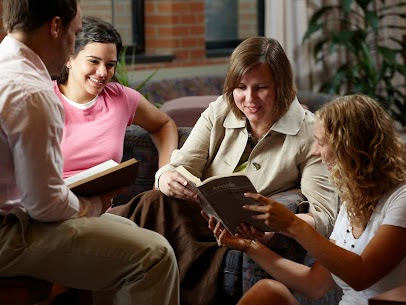
Support plays an integral part in a successful and effective recovery. The good news is that support can come from various internal and external systems. Regardless of where it comes from, one truth remains the same: no one can fight addiction alone. That’s why support is a cornerstone to success.
Understanding your role in a loved one’s recovery can be overwhelming and confusing. Plus, support can vary depending on if it is in the early stages of contemplation, during treatment, or in recovery. Regardless, there are some basic things to keep you in the know, so you don’t feel like you are overstepping any boundaries.
Let’s face it, life is always in session, so there are good days and some not-so-good days. When a loved one is in treatment or recovery, life’s ups and downs can go from a speed bump to a Himalayas-sized emotional mountain climb minus the safety ropes or oxygen mask. That’s why getting sober or drug-free alone is not recommended. It’s statistically almost impossible. Support breeds confidence and a safety net when things get difficult.
Watching someone struggle through their addictions can be painful. That’s why it is important that all loved ones also get support from their treatment center, even after treatment. Hence, many treatment centers offer family support during and after treatment. The last thing a patient needs is to return to the same broken or dysfunctional family dynamics.
Family support is mission-critical because all family members affected by substance use disorder (SUD) also need help coping and healing, not to mention understanding about how to support a loved one while maintaining healthy boundaries. Be clear as to what is acceptable and what is not. Families also need to protect their own physical, emotional, and spiritual well-being. Other key components are empathy and active listening. Once the family begins to heal, the members can become beacons of hope for their loved ones.
Community or social support comes in the form of a variety of hopeful sources:
First things first, support systems need to educate themselves. There are countless sources to learn how one can support a loved one. The best place to start is with their treatment center. Here are a few other great resources:
Also, it’s a good idea to understand the stages of recovery:
The goal here is to avoid use while cravings diminish. This stage is extremely important when it comes to support. Loved ones can help people in this stage by:
This is when it is important to fix damaged relationships. A patient can feel worse during the repair stage as damage control comes into play. This can come as shame, guilt, and fear, which can be perceived as vulnerable drawbacks, although these feelings are part of the process. Support can then come as goals to help with these feelings. Here are a few ways loved ones can provide support during the repair stage:
After some time—months or maybe longer, as each journey is unique—embracing the abstinence and repair stages, someone in recovery is ready for the growth phase. This is continuous for the rest of their recovery, so stay on track with them and be patient. Remember, this is a marathon, not a sprint; recovery is considered a lifelong process.
Much like amends during the repair stage, it’s important to address past traumas and issues that may have caused the addiction in the first place. This can be done through:
As you can see, support never really stops. Recovery improves through support. Support not only helps people in recovery grow, but it will help the entire support system grow. Loved ones of those in recovery can grow their relationship through unconditional love, re-connecting, empathy, and understanding.
Every patient facing SUD is unique. What doesn’t change, though, is the fact that support can come from various sources. Spouses, parents, caregivers, siblings, children, therapists, support groups, 12-Step groups, and sponsors are all instrumental in the recovery process. Your loved one needs your support regardless of where you fit in. Getting sober or drug-free is one thing; staying that way is something else entirely. There are numerous tools to help support and educate yourself. Here at California Care Detox & Treatment, we offer family support through listening, empathy, integrity, education, hope, and a holistic approach to recovery, along with many resources to help guide you and your loved one when it comes to support and sobriety. Recovery can begin when you call (949) 281-0632 today. See how we can support you and your loved one in mind, body, and spirit.